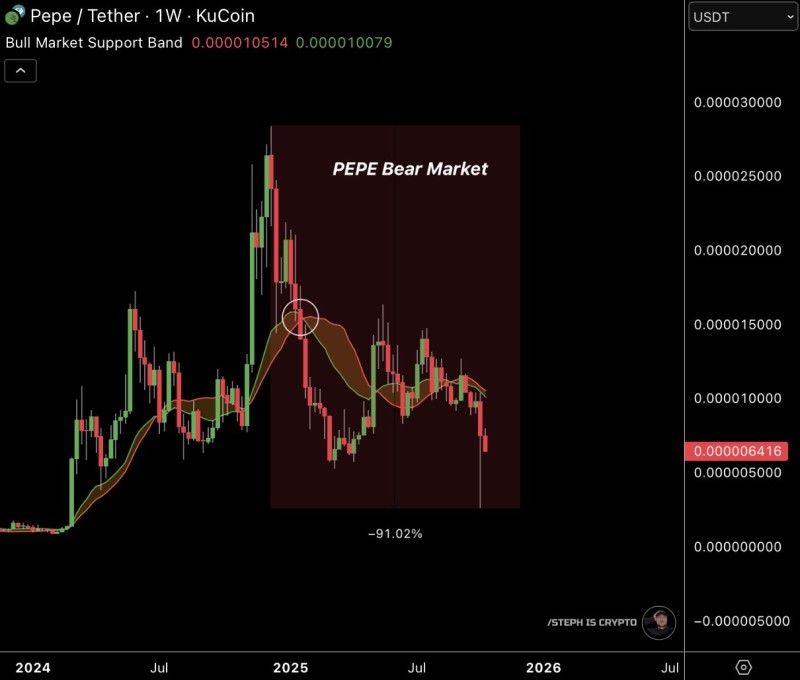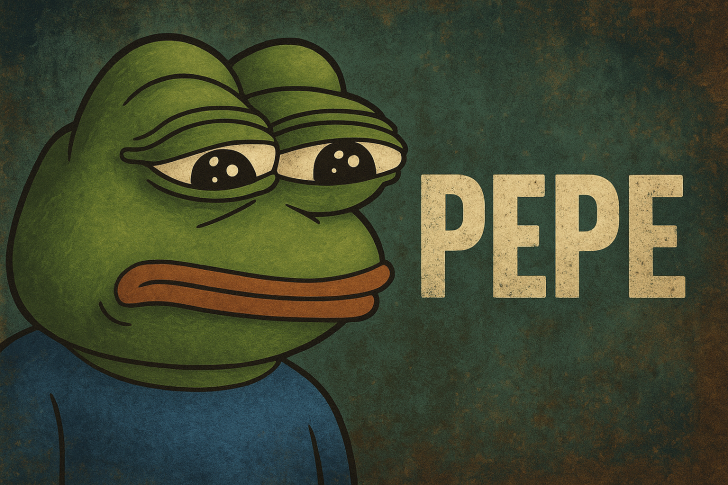After a brutal decline that wiped out more than 90% of its peak value, Pepe is finally showing signs of life. The meme token's year-long bear phase appears to be running out of steam, with speculation growing that renewed volatility and daily gains could return soon.
Pepe's Bear Market May Be Reaching Its Final Phase
According to trader STEPH IS CRYPTO, the weekly PEPE/USDT chart from KuCoin tells the story clearly. After hitting its 2024 peak, the token crashed roughly 91%, confirming a deep bear market. This decline began when the coin lost its Bull Market Support Band between 0.000010514 and 0.000010079.

Once Pepe broke below this level, sellers took control. But recent price action suggests something's changing. The decline is slowing, and the price is consolidating near 0.0000064 USDT, which could become a long-term support base.
Technical Picture: Weak Momentum, Possible Accumulation
Key technical levels to watch:
- Support Zone: The 0.0000060–0.0000065 range acts as primary support where buyers have started defending price levels
- Resistance Zone: The 0.0000105–0.0000150 area is the main hurdle. A weekly close above this range would confirm a trend reversal
- Trend Indicators: Moving averages still point downward but are flattening, reflecting bear exhaustion
- Market Sentiment: Fear and low volume are classic late-stage bear signals that often appear before sentiment shifts
The price behavior mirrors earlier meme coin cycles—long corrections followed by sharp volatility spikes once buyers return.
Market Context and Historical Comparison
Pepe's decline resembles the drawdowns Dogecoin and Shiba Inu experienced during previous market resets. These sentiment-driven tokens typically bottom during quiet periods when retail interest fades.
In 2025, the market's rotation toward Bitcoin and AI-related assets drained capital from meme coins. But history shows meme assets often bounce back aggressively once liquidity improves, sometimes outperforming established altcoins early in new cycles. With Pepe down over 90%, the risk-reward balance is tipping in favor of long-term positioning.
 Eseandre Mordi
Eseandre Mordi

 Eseandre Mordi
Eseandre Mordi


